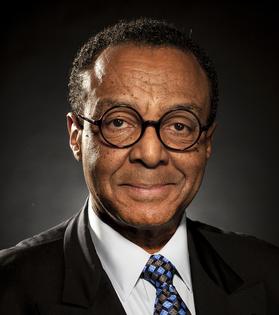Economic Gloominess in Spite of Upbeat Data Also Affects Immigration Debate
When we think about the economy, it’s not just numbers that matter. It’s also how we feel about the numbers.
Public discontent about the economy, even as the economy is growing and unemployment is low, has been President Joe Biden’s persistent headache.
I thought about this contrast between hard numbers and soft feelings as I spotted the recent Tribune headline, “No migrants camped out at O’Hare International Airport for first time since summer, questions loom over dwindling city funds.”
Indeed, the $150 million that Mayor Brandon Johnson budgeted to handle the migrant crisis is expected to be spent by April. Over the longer haul, how many more will arrive is uncertain. We’re subject to whether or when Texas Gov. Greg Abbott or some other grandstanding southern Republican governor sends another busload of asylum-seekers to the Windy City at our windiest time of year.
But, for now I’ll take some good news wherever I can read it. The relief at O’Hare is welcome.
So is the national news that unemployment has not risen above 4% for two years. Likewise, cooling inflation is most encouraging, from 9% or so to just over 3%. We’re nearing the 2% goal set by Federal Reserve Chair Jerome Powell.
But, as Team Biden knows all too well, the president’s public approval ratings have been poor despite the favorable economic news. It’s a hollow victory for an administration to nudge the economy into good-news territory if nobody seems to be feeling or accepting it.
Ironically, considering all of the attention the media and the voters tend to place on a president’s economic success, there’s not really a lot a president can do to move the economy. They do what they can to try to influence the Federal Reserve and offer economic incentives — and pray.
But, considering the pressures put on Chicago and other cities from the migrant influx, it is ironic that when Powell was asked recently about the positive economic news on “60 Minutes,” he pointed out that “the U.S. economy has benefited from immigration.”
“And, frankly,” he added, “just in the last year a big part of the story of the labor market coming back into better balance is immigration returning to levels that were more typical of the pre-pandemic era.”
Was this why former President Donald Trump worked so hard to persuade House Republicans to scrap the bipartisan immigration and border security bill that had been worked out by Senate negotiators? Trump clearly wanted to hold onto one of his signature issues — the border is a mess, and only he can fix it — even if it meant the demise of the most promising immigration compromise since the Reagan era.
Trump and his MAGA supporters have tended to treat the lure of America to immigrants from around the world as a curse rather than a blessing, even when the economic data tell a different story. Trump thunders about migrants “poisoning our nation’s blood.” Meanwhile, the nonpartisan Congressional Budget Office recently projected $7 trillion in added benefit to the U.S. economy over the coming decade thanks to the recent boost in immigration.
That’s a familiar tale in our “land of immigrants,” as many of us like to think of it. Immigration politics typically are a peculiar barometer of national feelings about the economy.
When they feel good about their own economic futures, Americans tend to say, “y’all come,” to the world. But when things turn gloomy, we tend to say, “stay away” — even when it robs the country of a generation that can help us to build a better future.
========
(E-mail Clarence Page at cpage@chicagotribune.com.)
©2024 Clarence Page. Distributed by Tribune Content Agency, LLC.
(c) 2024 CLARENCE PAGE DISTRIBUTED BY TRIBUNE MEDIA SERVICES, INC.



























Comments